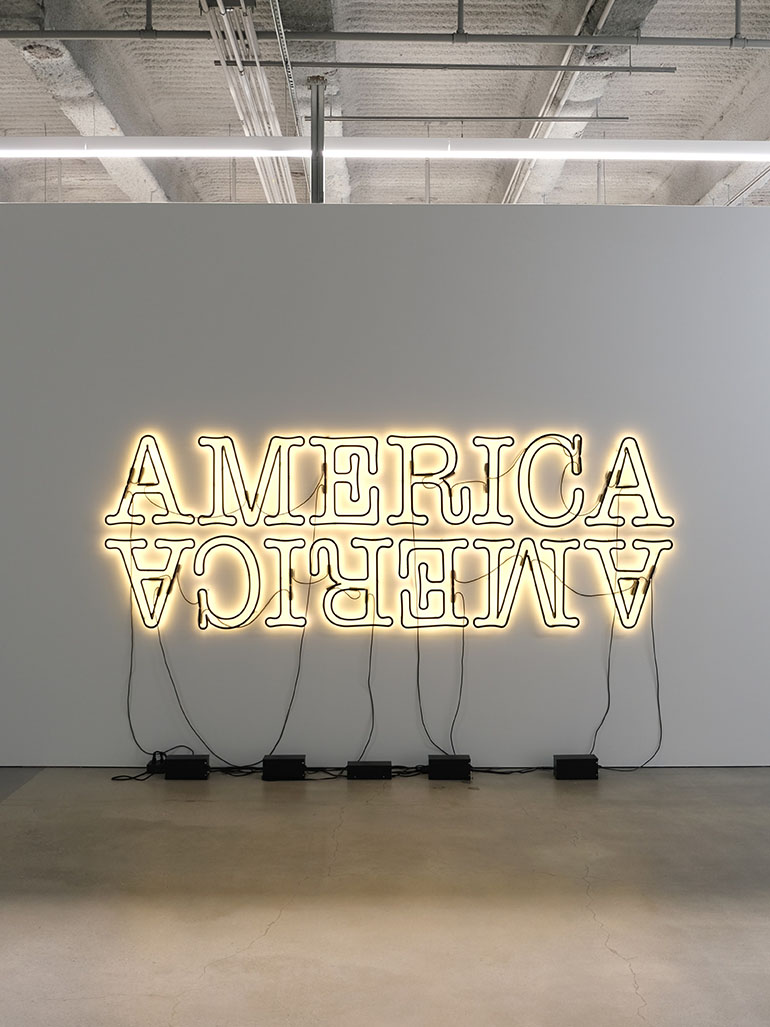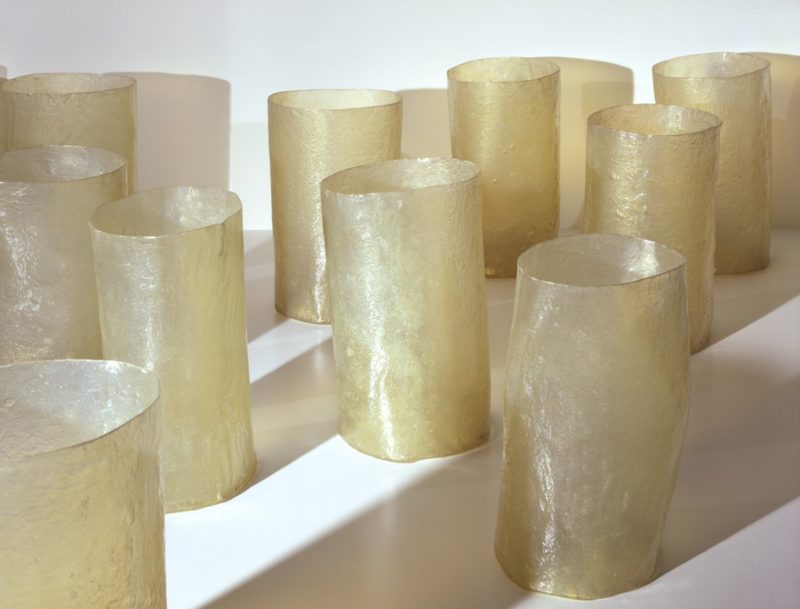
Introduction
It’s possible to create a piece of remarkable art from just about anything. If you doubt that, then you have probably not encountered Repetition Nineteen III by Eva Hesse 1. In it, Hesse brings 19 translucent 2 forms to life. Each bucket-like form is roughly 20 inches in height. If you ever wanted to see a perfect example of minimalist art, then you should consider visiting the gallery where this installation is found. Here, we take a detailed look at this creation.
What is Repetition Nineteen III?
Repetition Nineteen III is a composition of see-through bucket-like forms. They are all similar, thus, likely to give you a hard time in case you try to separate one from the other. More impressively, Hesse created such stunning work from handmade and irregular forms. Ideally, in such cases, one would expect the forms to be manufactured and hard-edged. She took a different approach, and the result is intriguing.
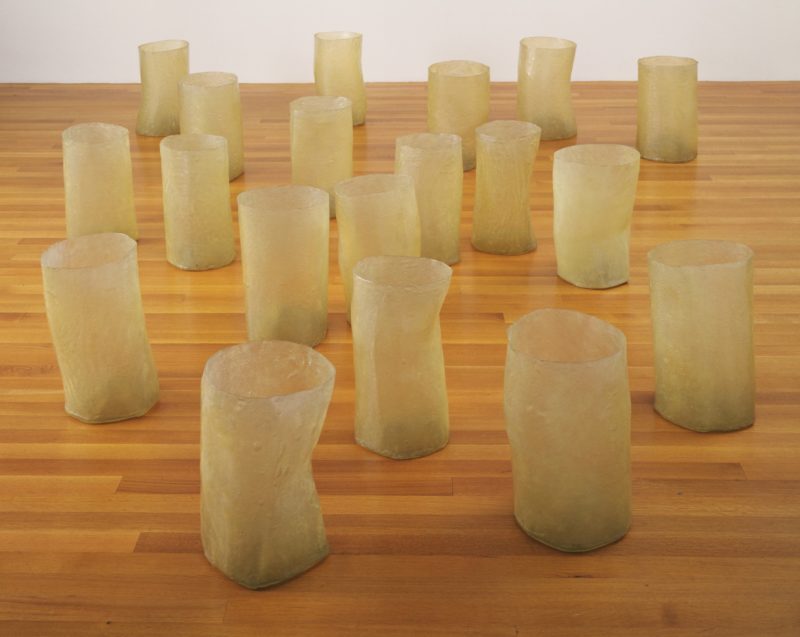
Pioneering work
More remarkably, Hesse made sure that her creation sits comfortably on the gallery floor. That, too, is an artistic thought. The arrangement is a clear demonstration of Hesse’s flexibility. Other than that, it’s also important to say something about the materials she used in this piece. Specifically, Hesse employed wide-ranging materials. She wasn’t averse to using new types of materials, such as fiberglass. Prior to this, nobody had used fiberglass in art.
Video: Eva Hesse’s Unforgettable Legacy
4 min 20 sec
What does it represent?
What does it represent?
When evaluating any work of art, one also needs to consider the meaning. In this case, Eva Hesse’s Repetition Nineteen III represents all that she had worked on until 1968. Essentially, one might conclude that it was the culmination of her work up until that point. Apart from that, the work also represents the world that surrounds her. For example, there is a clear link between the art and her compartmental preoccupations.
It also carries sexual hints. After all, Hesse is renowned for famously quipping that excellence has no sex. It’s also good to clarify that Repetition Nineteen III represents all that had influenced Hesse in her career as an artist. Over the years, Hesse had forged close friendships with many male artists. Through this art, she also provides a hint into this aspect of her life. Undoubtedly, this work proved that she was right to think about playing with materials.
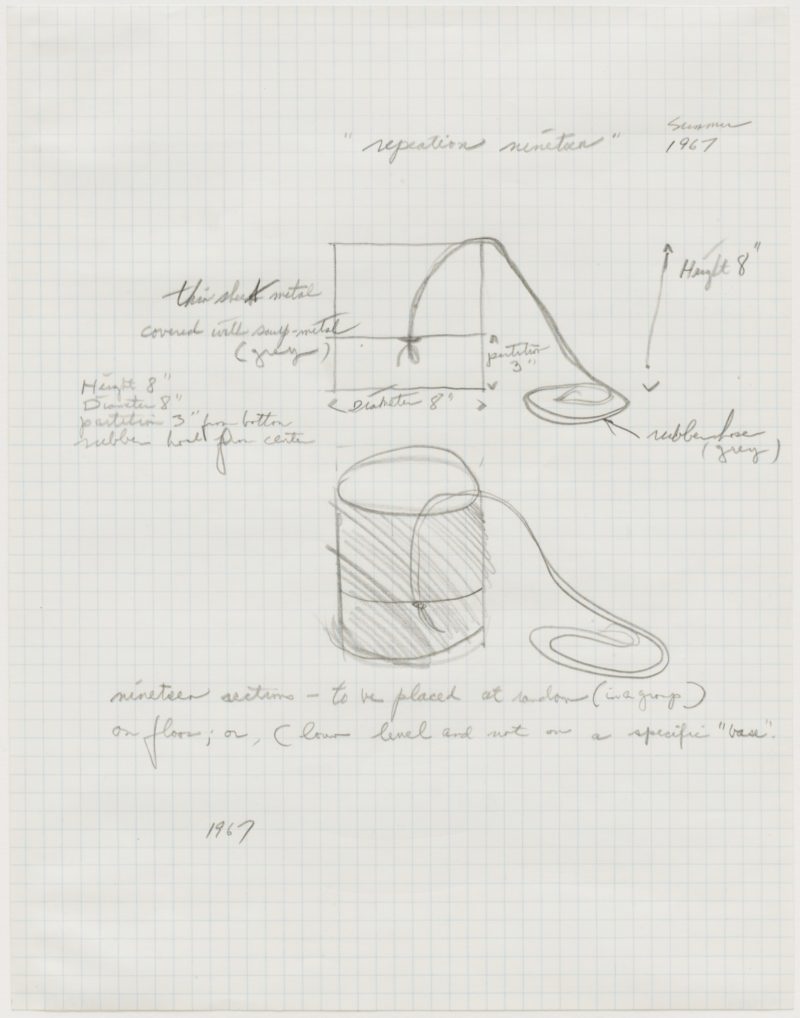
Eva Hesse’s Style
As Repetition Nineteen III shows, Eva Hesse has a distinctive style, one to which she has remained true and faithful throughout her career. Her style is also a reflection of the movements and philosophies that she supports or believes in. Based on this work, it’s clear that Hesse is a great believer in minimalist style and philosophies. Other than that, she also identifies with the post-minimalism and feminist art 3.
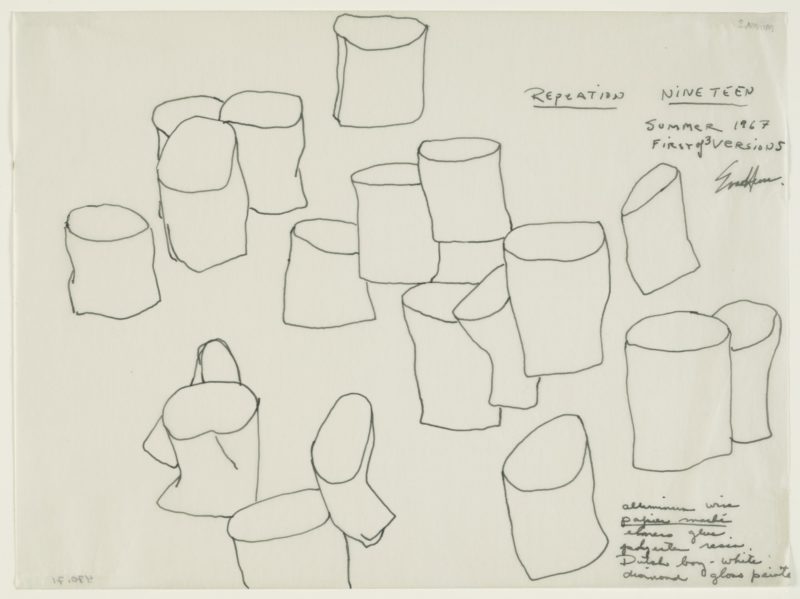
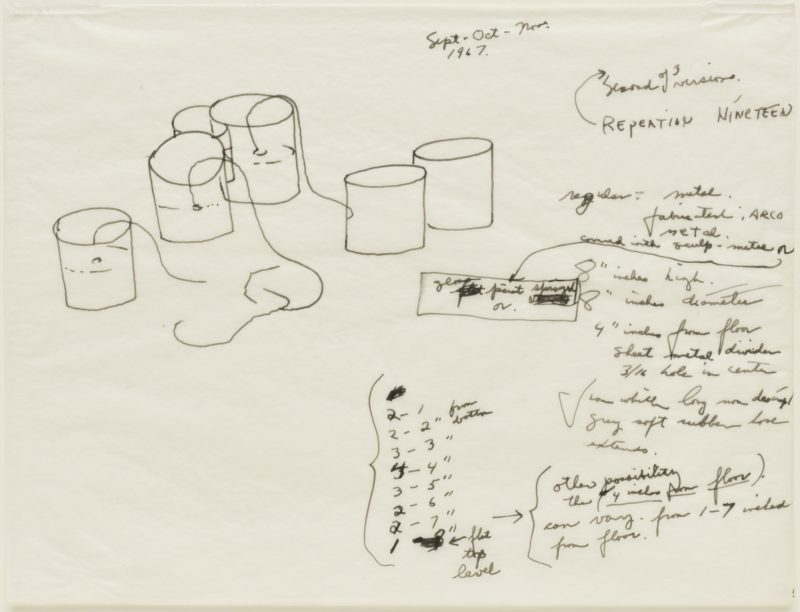
Other significant works
Eva Hesse was also responsible for creating works that include:
- Untitled, 1960
- Ringaround Arosie, 1965
- Hang Up, 1966
- Metronomic Irregularity II, 1966
- Accession II, 1967-1968
